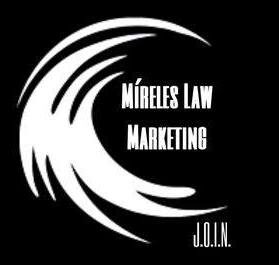CRM and Automation Marketing for Lawyers
CRM Automation Marketing for Lawyers, what are they? We tell you everything you need to know about them and how to take advantage of our systems to get clients in your legal sector.
CRM and marketing automation: what is it and how does it benefit my law firm?
Marketing has developed significantly over the years and has transformed into something more complex and, consequently, more bewildering. Buyers are now using various media platforms to compile data and stay on trend, which complicates the life of marketing and sales experts.
However, with CRM and marketing automation capabilities, a company can accelerate and optimize a variety of marketing tasks. This will increase the effectiveness and also the efficiency of the sales and marketing team by saving time on administrative tasks, delivering messages with the right content to the right audience, closing deals faster through increased automation, and thereby increasing revenue and profits.
What is marketing automation for lawyers?
Marketing automation for lawyers is the process of leveraging software to automate repetitive marketing tasks. Marketers use this software with the intention of generating leads, usually through integrations with customer relationship management (CRM) software and customer data platform (CDP). In addition, they use these platforms to automate and personalize marketing messages and content. It’s a very good business for vendors.
When we talk about marketing automation we mean a technology that allows you to target customers with personalized campaigns by leveraging data. So, with the marketing automation software you choose, you can achieve improved marketing activities, effective campaigns, increased consumer engagement and significant revenue.


What is a CRM for lawyers?
CRM (Customer Relationship Management) is defined as an integrated software system that serves to help business owners and law firms cultivate their relationships with their clients. A CRM also helps with organization, efficiency, time management and client impression at every stage of business development.
Such platforms are effective systems that link all of your client and prospect data in one place for better interactivity. CRMs record and study all calls, emails and meetings, which helps to optimize customer service, promote sales and increase revenue. As a company generates potential and qualified customers, a CRM examines a prospect’s actions through social media, email and website channels. The system stores as much information as possible about leads before directing them (or helping you direct them) through a planned journey that reaches all points of focus.
Our email marketing service for lawyers consists of improving the relationship of your clients with the company, opting for non-invasive techniques, adapting the content for each consumer, as well as to publicize new products or services of the brand, promote loyalty, generate consumption habits, attract new customers and in many occasions repeat purchases.
Difference between marketing automation software and CRM
Marketing automation software
Its focus is on marketing and delivering personalized campaigns. In other words, marketing automation software is limited to marketing. They help companies and law firms optimize marketing efforts, automate marketing campaigns and gain data-driven insights.
Customer relationship management (CRM) software
On the other hand, CRM software focuses on the customer and gives you a 360-degree view of consumers. The most relevant difference is that the CRM platform is not restricted to a certain business operation, it allows flexibility for CRM customization in order for your software to reflect your business needs and also CRM integrations for business optimization, so you can use different applications or software from the same platform.
Benefits of legal marketing automation
CRM and marketing automation for lawyers is a wonderful technology only if it is customized according to the needs and requirements of the company or firm; otherwise, it can be counterproductive. Some potential benefits come implicit in its multiple functions, the most relevant can be:
Lead nurturing
This is the process of sending a set of automated emails to engage potential customers by providing them with valuable information.
Personalized email marketing
Email personalization helps companies develop better relationships with their customers.
CRM Integration
This allows companies to transfer lead information between marketing and sales.
Campaign management
Companies can execute email campaigns to nurture leads throughout the sales cycle. It allows teams to send direct, personalized emails to a large number of people.
Benefits of CRM for lawyers
The benefits of a CRM system are available to salespeople, marketing teams, customer service specialists and anyone else who comes into contact with customers in large and small companies. These may include the following:
Organization
As you transition into the system, the CRM will enter basic contact information, such as phone numbers, email addresses and preferred contact information. Once your CRM system is up and running, CRM users can track and trace basic information and advanced data about each customer. This may be the biggest benefit.
Task Tracking
Integrate a company’s own workflow and save time on day-to-day tasks. Automation can promote customer engagement and provide consistency. Consistency is one of the unsung benefits of a CRM system: when customers receive discordant messages, they become slightly confused rather than excited.
Personalize communication
All those tokens in your CRM database can be used to found deeper customer relationships through personalized communications. One way to do this is to address customers by name in emails or create industry-based nurturing campaigns.
Increased sales opportunities
A CRM system can track buying patterns and provide information on themes and trends. That kind of analysis can help develop micro-specific plans and strategies to encourage more sales at specific times.
Track sales progress across your organization
Aside from managing the customer base, an optimal CRM is also robust enough to track the sales progress of your entire organization. If you work for a single person, you get the help you need to track leads and follow up.
Types of marketing automation
CRM (Customer Relationship Management Automation)
One of the most significant features of automated marketing is customer relationship management (CRM). CRM will aggregate customer data in a convenient space called a dashboard. The marketing team can have timely access to select customer data such as email addresses, phone numbers, location and other demographic data.
Email automation
Extrinsically, such a program helps email campaigns to be sent according to triggers. Internally, it forgoes repetitive tasks and encourages smoother work.
Landing page automation
Landing pages are essential to devise high conversion rates. If your website does not have specific landing pages based on your company’s main buyers, it means that your site is not optimized.
Web form automation
This is similar to the landing page builder. Your creative team can generate dynamic web forms quickly. Marketing experts can customize pre-designed web form templates with your brand aesthetic.
Social media automation
Its function is to schedule and publish content. In addition, it also handles cross-posting, conversations and tracking. When you have content to post to multiple social media sites, the automated program can schedule and post to multiple channels.
Blog automation
You can schedule and publish blog articles automatically on your website, also share them on your social media accounts. With built-in analytics, you can also see how well your articles are doing and configure your content strategy.

Types of CRM that we can use in our law firm
CRM systems are divided according to their salient features. There are four basic types of CRM systems that we can take advantage of in the legal sector:
Collaborative CRM
This is an alignment of resources and strategies between separate businesses to identify, reach, develop and maintain valued customers. It is used in the B2B scenario, where multiple companies can perform product development, market research and marketing in an embedded manner.
Strategic CRM
This is a type of CRM in which the firm puts customers first. It collects, segregates and applies information about customers and market trends to generate a better value proposition for the customer.
Operational CRM
This is oriented to customer-focused business processes, such as marketing, sales and services. It contains the following automations: sales force automation, marketing automation and service automation.
Analytical CRM
Focuses on capturing, interpreting, segregating, storing, storing, modifying, processing and reporting customer related data. In addition to this, it holds internal enterprise-wide data such as sales data (products, volume, purchase history), financial data (purchase history, credit score) and marketing data (response to campaign numbers, customer loyalty scheme data).
CRM Automation Marketing for lawyers: Integration
Marketing automation platforms that seamlessly integrate with customer relationship management platforms can be a powerful weapon. Precise CRM integrations will allow you to seamlessly transfer lead information between marketing and sales, this makes CRM the leading marketing automation software with seamless integrations as it enables you to run successful personalized marketing campaigns based on interaction data. with the client.
Also, a better alignment between marketing and sales will optimize the effectiveness of campaigns and help in marketing automation. Your CRM system should communicate with your marketing automation platform and your marketing automation platform should communicate with your CRM system.
Why use marketing automation in conjunction with a CRM?
This integration makes it easier to have information about marketing and sales interactions in one place, this feature improves team efficiency and increases confidence in organized processes.
In addition, integrating CMR with marketing automation also eliminates frustration and annoyance by automating tasks that are monotonous and susceptible to automation. The commerce team doesn’t need to send out the same repetitive mailings or marketing doesn’t need to send out the cumbersome list of new contacts every week. With a successful integration you will be able to focus on what does bring value to the potential customer.
When to use a marketing automation tool
A company can use any set of tools to grow its business, but adopting a marketing automation suite into a company’s sales process is one of the inescapable choices. An automation tool can have many uses, from lead generation and nurturing to scoring, targeting and improving the overall customer experience. It could even handle repetitive tasks at scale, allowing your company to tackle higher-order problems while reducing the amount of human error and manpower.
If your company’s sales and marketing teams are not aligned, implementing a marketing automation tool can be a way to amend this potential drawback. According to some studies, companies, marketing teams and top-performing marketers use marketing automation to create campaigns, analyze performance and nurture their sales teams with good leads to achieve superior ROI. These companies are not 10 times better, smarter or more capable than you, if the idea is to grow your business, you will need marketing automation tools.

